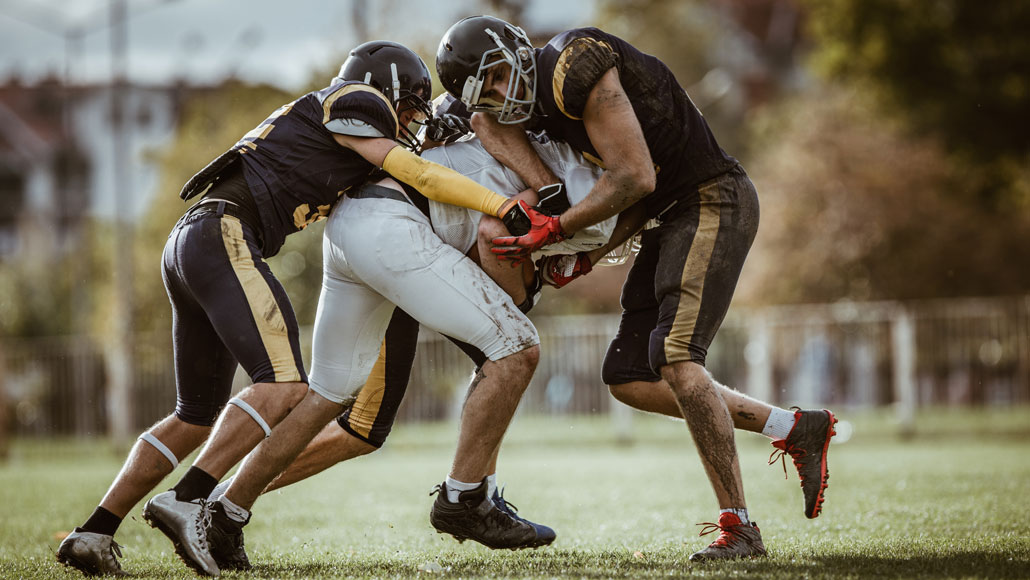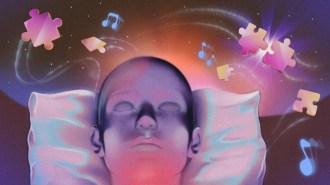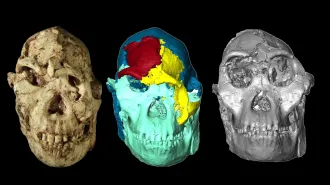Even without concussions, just one football season may damage players’ brains
Collisions in practices and games may be causing changes in white matter in the brain stem

CRUNCH Over a season of college football, head knocks that were too small to cause concussions were nonetheless linked to changes in the brain stems of players.
skynesher/E+/Getty Images







